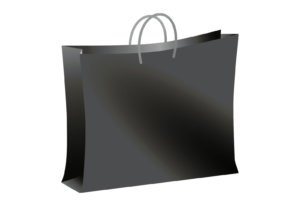AD/CVD Petitions
This post is on what you as an importer, exporter or foreign producer should do if you see an AD/CVD storm looming.
The first thing you should do is determine whether the AD/CVD petition will directly hit your primary operations. The second thing you should do is figure out how best to defend yourself if the AD/CVD petition is headed directly your way. The third thing you should do if you do get hit by AD/CVD duties is to figure out damage control going forward.
For ease of reading, this post will mostly focus on products exported from China to the United States, but its advice applies with equal force to products exported from any other country to the United States, and with nearly equal force to products exported from any other country to any other country that also has AD/CVD sanctions.
1. New AD/CVD Petition – Are my products affected?
AD/CVD petitions include a proposed scope definition that identifies the products covered. AD/CVD scope definitions can be complicated and unclear. They may be broader or narrower than the Customs tariff classifications used to identify the imports. Even if you think your products are outside the scope of the petition, U.S. Customs may disagree. U.S. Customs commonly demands you first pay an AD/CVD deposit, assuming that your products are within the scope of the AD/CVD petition, and then Customs will return your deposit only if you get a Department of Commerce (DOC) ruling that your products are actually outside the scope.
Once you know the scope definition, you can evaluate the degree to which the AD/CVD action could impact your business. Sometimes you can find alternatives to replace the subject AD/CVD products with either non-subject products or by your sourcing from non-subject countries. If you have options to switch away from the products covered by the AD/CVD action, it may not be necessary to participate in the AD/CVD investigation.
2. How to defend against an AD/CVD investigation
If your product is within the scope of the AD/CVD petition and the U.S. market is worth fighting for, you should determine the best way to prepare for the AD/CVD investigation. If you have enough time before a petition is filed, you theoretically can try to adjust your sales to remedy whatever is causing the dumped or subsidized sales, most commonly by raising your prices for certain products or customers, or by modifying your production by lowering or reallocating costs.
Unfortunately, most companies are not proactive about planning to avoid AD/CVD actions and instead react only after a petition is filed. We find this especially true of our clients that import from China, as opposed to Europe.
Once an AD/CVD investigation is initiated, foreign producers and exporters and US importers should try to defend their interests before the two agencies responsible for making AD/CVD determinations: The International Trade Commission (ITC) determines whether a domestic industry is injured or threatened with injury by the subject imports and the Department of Commerce (DOC) determines how much the subject imports are dumped or subsidized.
In ITC investigations, the best defenses are presented when the foreign producers, US importers, and US purchasers can organize and explain why the subject imports should not be blamed for any decline in the domestic industry’s performance. Because the ITC examines a broad range of data regarding the US market for the subject product, a comprehensive explanation of relevant market conditions is necessary to a winning argument.
In DOC investigations, the foreign producer and exporters are the primary respondents to the DOC’s questionnaires. These companies must provide extensive corporate structure, sales, and cost data, often through multiple rounds of questionnaires. The DOC uses the submitted data to calculate AD/CVD margins. Unaffiliated US importers usually do not need to submit data in DOC investigations and reviews, but they often will closely monitor DOC proceedings because they will ultimately be responsible for paying the AD/CVD duties. See Sourcing Product From China: You Should Know About Importer of Record Liability.
The key to any AD/CVD defense is participating fully in both the DOC and ITC investigations. If you do not participate, you have no chance of winning. If a party does not timely or fully respond to a DOC/ITC investigation the DOC and ITC can apply the adverse facts available to your situation and that inevitably leads to higher AD/CVD margins. US importers should at least actively monitor DOC proceedings because their final AD/CVD liability often depends on how well the Chinese producers and exporters are able to respond to the DOC questionnaires. It is not uncommon for Chinese producers/exporters to mount a very weak or no defense at all, leaving the U.S. importer essentially “holding the bag.” If you are the U.S. importer, there are many things you can and should do to try to prevent this from happening to you.
3. How to Plan for Life with AD/CVD
Nearly all AD/CVD petitions lead to orders for imposing AD/CVD duties. However, depending on the scope of the AD/CVD order, you may be able to maintain your business operations by identifying alternative out-of-scope products or by switching your product sourcing to a non-subject country. But in switching sourcing, U.S. importers should be careful to avoid actions that could be considered as designed primarily to evade AD/CVD duties, as the DOC can extend orders through circumvention investigations. Customs too can conduct its own investigation of duty evasion allegations.
Because the United States uses a retrospective AD/CVD system, foreign suppliers and US importers have the opportunity each year to try to lower their dumping margin. Since AD/CVD duties are “remedial”, foreign producers and U.S. importers have ample opportunity to adjust their production and sales operations so to “fairly” sell into the U.S. market, as defined by U.S. trade laws. With proper planning and disciplined execution, companies can sometimes make even minor adjustments to reduce or eliminate their AD/CVD duty liability.
Bottom Line: You are not without defenses when the AD/CVD bogeyman is looking for you. There are things you can do to stop it from attacking your business and to restore your business once attacked.

























